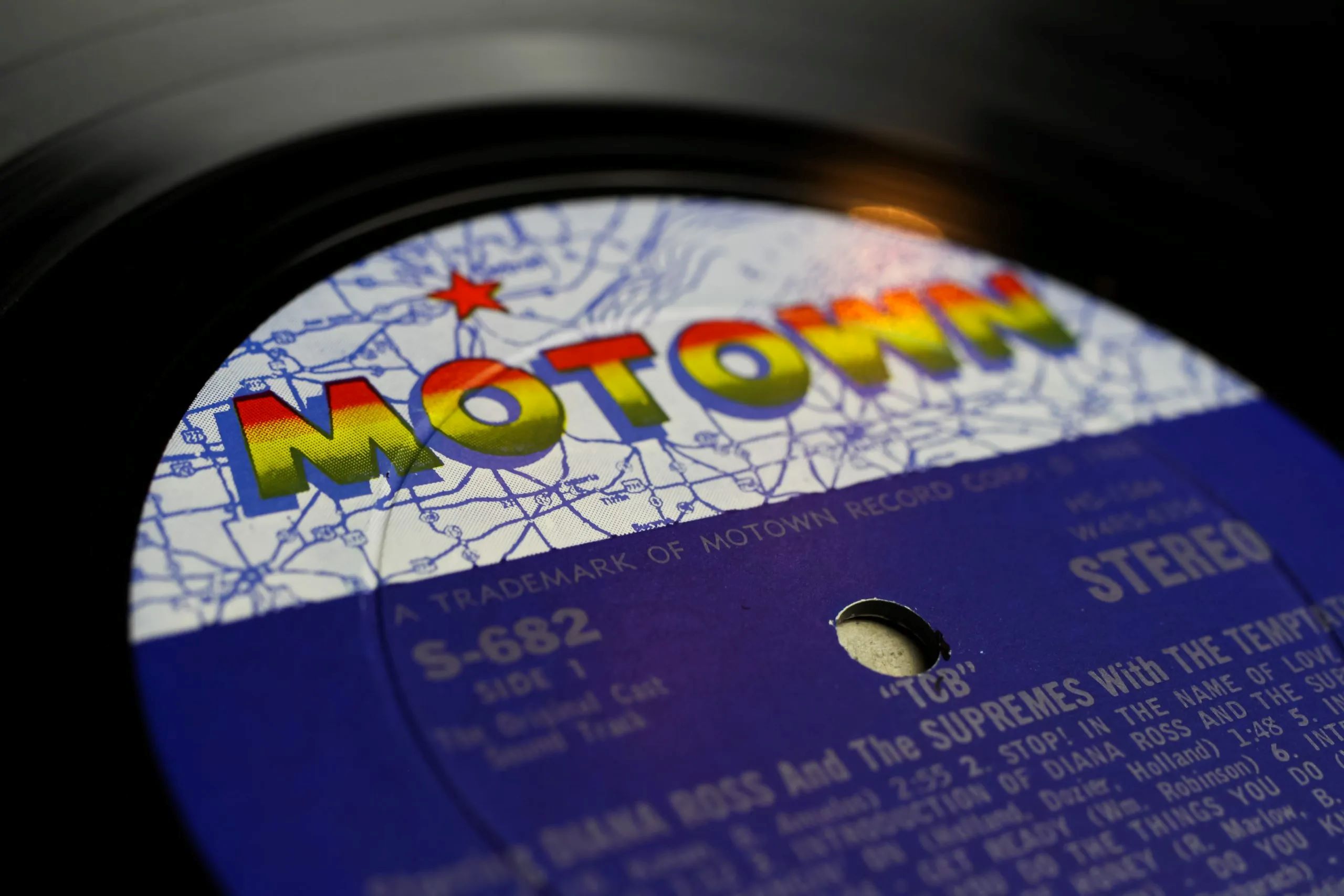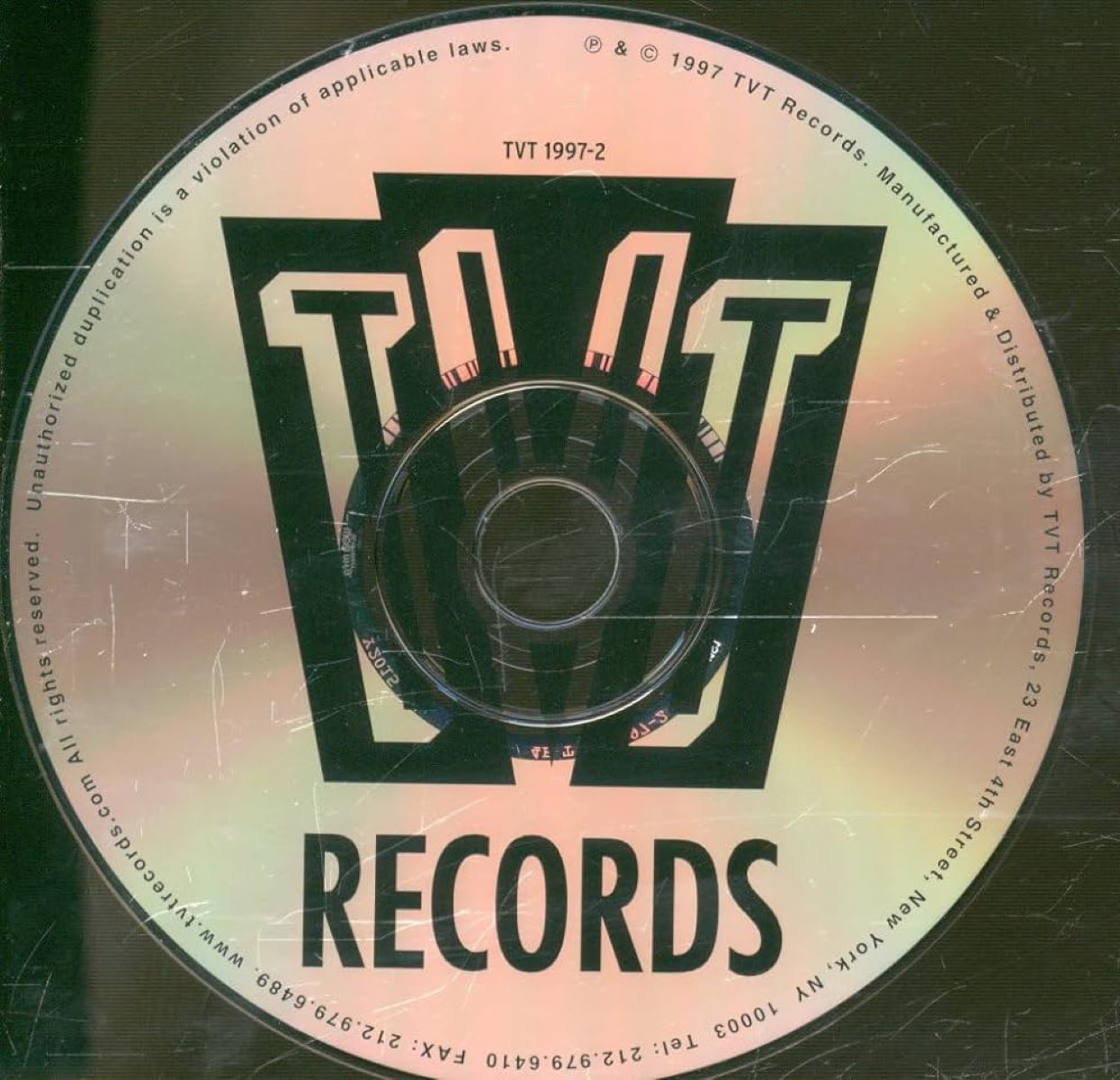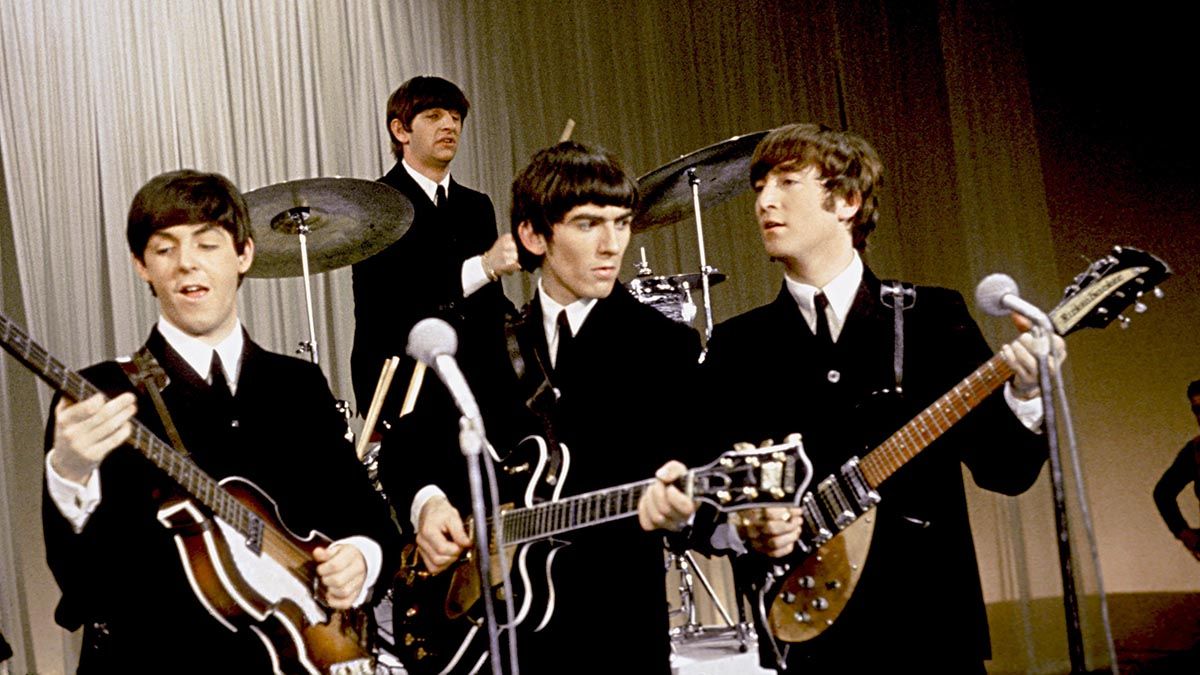Home>Production & Technology>Record Label>What Record Label Did The Beatles Use


Record Label
What Record Label Did The Beatles Use
Published: January 24, 2024
Find out which record label The Beatles used and how it shaped their iconic career. Explore the impact of this influential record label on the band.
(Many of the links in this article redirect to a specific reviewed product. Your purchase of these products through affiliate links helps to generate commission for AudioLover.com, at no extra cost. Learn more)
Table of Contents
Introduction
The Beatles, one of the most influential and iconic bands in the history of music, revolutionized the music industry and left an indelible mark on popular culture. Throughout their career, they recorded and released countless hit songs and albums that continue to inspire generations of musicians and fans alike.
Part of what contributed to their success was their partnership with record labels, which played a vital role in promoting and distributing their music to a global audience. In this article, we will explore the record labels that The Beatles were associated with and how these partnerships shaped their career.
From the early days of their formation to the groundbreaking establishment of their own record label, The Beatles’ journey in the music industry is a fascinating story that showcases the power and influence of record labels.
So, let’s dive into the world of The Beatles’ record labels and discover the role that these labels played in the band’s astonishing rise to fame.
Overview of The Beatles
The Beatles, comprised of John Lennon, Paul McCartney, George Harrison, and Ringo Starr, emerged in the early 1960s as a British rock band that would soon take the world by storm. Their unique blend of catchy melodies, innovative songwriting, and charming personalities captivated audiences across the globe.
Formed in Liverpool, England, in 1960, The Beatles began performing in local clubs before catching the attention of Brian Epstein, who would become their manager. They signed their first major record deal with Parlophone Records, a subsidiary of EMI Records, in 1962.
Over the course of their career, The Beatles released numerous hit singles and acclaimed albums, such as “Please Please Me,” “Revolver,” “Sgt. Pepper’s Lonely Hearts Club Band,” and “Abbey Road.” Their music not only pushed boundaries but also reflected the changing social and cultural landscape of the time.
With their innovative songwriting, harmonies, and experimentation with different musical styles, The Beatles helped redefine the possibilities of popular music. Their influence can still be heard in the work of countless artists today.
Despite achieving enormous success, the band faced internal challenges, leading to their breakup in 1970. While their time together was relatively short, spanning just a decade, their impact on music and popular culture has endured for over half a century.
Now that we have an overview of The Beatles and their immense cultural significance, let’s take a closer look at the role that record labels played in their journey to stardom.
Importance of Record Labels in the Music Industry
Record labels serve as the backbone of the music industry, providing artists with the necessary resources, support, and expertise to create, promote, and distribute their music to a wide audience. They play a crucial role in nurturing talent, guiding artists’ careers, and maximizing their commercial success.
One of the key functions of record labels is to invest in artists, both financially and creatively. Labels provide funding for recording studio time, production costs, marketing campaigns, and music videos. They also offer guidance and collaboration with experienced producers, engineers, and songwriters to help artists refine their sound and craft compelling songs.
Record labels also take on the responsibility of promoting artists and their music to the masses. They leverage their networks, industry connections, and marketing expertise to secure radio airplay, organize press interviews, and arrange performances on television shows and live events. This exposure is vital in building an artist’s fanbase and generating buzz around their music.
Additionally, record labels handle the distribution of music, ensuring that it reaches various platforms, including physical formats like CDs and vinyl records, as well as digital platforms like streaming services and online stores. They have established relationships with retailers and streaming platforms that enable them to effectively distribute and monetize an artist’s music worldwide.
Furthermore, record labels provide artists with valuable support in terms of legal matters, such as contract negotiations, copyright protection, and royalty collection. They have legal teams dedicated to protecting artists’ intellectual property rights and ensuring that they receive fair compensation for their work.
The partnership between artists and record labels is typically based on a contractual agreement, where the label receives a percentage of the artist’s earnings in exchange for the services and resources provided. While this arrangement may vary, the goal is to create a mutually beneficial relationship where artists can focus on their craft while the label handles the business aspects.
Overall, record labels play a fundamental role in shaping an artist’s career, from investing in their early development to promoting their music and facilitating their global reach. Without the support and infrastructure that record labels provide, many artists would struggle to navigate the highly competitive and ever-evolving music industry.
Now that we understand the importance of record labels, let’s delve into The Beatles’ early years and their collaboration with EMI Records.
The Early Years of The Beatles
The early years of The Beatles marked the beginning of a musical revolution that would change the landscape of popular music forever. The band, initially consisting of John Lennon, Paul McCartney, George Harrison, and Stuart Sutcliffe, gained popularity in their hometown of Liverpool, England, performing in local clubs.
In 1960, The Beatles were invited to perform in Hamburg, Germany, where they honed their skills and developed a unique sound. It was during this time that they underwent a lineup change, with Sutcliffe leaving the band and Ringo Starr joining as their drummer.
Upon returning to Liverpool, The Beatles caught the attention of Brian Epstein, a local record store manager who became their manager and helped secure them a recording contract. In 1962, they signed with Parlophone Records, a subsidiary of EMI Records, under the guidance of producer George Martin.
The Beatles’ early recordings showcased their infectious energy, harmonies, and catchy melodies. Their debut single, “Love Me Do,” released in October 1962, reached moderate success, peaking at number 17 on the UK charts.
It was their second single, “Please Please Me,” released in early 1963, that marked their breakthrough. The song soared to the top of the charts, catapulting The Beatles into the mainstream spotlight.
Following the success of “Please Please Me,” The Beatles continued to release hit after hit, including “She Loves You,” “I Want to Hold Your Hand,” and “Can’t Buy Me Love.” Their distinctive sound, a combination of rock and roll, pop, and elements of their own creativity, captured the hearts of millions.
As their popularity grew, The Beatles embarked on extensive tours across the United Kingdom and eventually conquered the United States, sparking the phenomenon known as “Beatlemania.” Crowds of screaming fans would greet them at every performance, showcasing the immense influence they had on the youth culture of the time.
During this period, The Beatles’ relationship with EMI Records and their producer George Martin played a pivotal role in shaping their sound and guiding their artistic direction. The combination of The Beatles’ creativity and Martin’s production skills resulted in a series of groundbreaking albums that pushed the boundaries of popular music.
As we continue to explore The Beatles’ journey, let’s take a closer look at their collaboration with EMI Records and the impact of Parlophone Records on their success.
The Beatles’ Collaboration with EMI Records
The Beatles’ collaboration with EMI Records, particularly through their subsidiary Parlophone Records, played a crucial role in shaping their early success and establishing them as a groundbreaking musical force. Their partnership with EMI Records, led by producer George Martin, allowed The Beatles to explore their creative boundaries and revolutionize the sound of popular music.
When The Beatles signed with Parlophone Records in 1962, they were initially met with skepticism from other major labels. However, it was George Martin, an experienced producer at EMI, who saw their potential and believed in their talent. Martin’s open-mindedness and willingness to experiment with new recording techniques were instrumental in shaping The Beatles’ distinctive sound.
Under the guidance of George Martin, The Beatles embarked on a series of recording sessions at the famed Abbey Road Studios in London. The collaborative relationship between the band and Martin allowed for an innovative approach to recording, which included the use of unconventional instrumentation, studio effects, and multi-track recording.
One of the defining moments of The Beatles’ collaboration with EMI Records came with the release of their album “Sgt. Pepper’s Lonely Hearts Club Band” in 1967. This groundbreaking album showcased their desire for experimentation and artistic exploration. With Martin’s expertise and the technological advancements of EMI Studios, they pushed the boundaries of what was considered possible in popular music.
From the symphonic elements in “A Day in the Life” to the innovative use of studio effects in “Lucy in the Sky with Diamonds,” the album demonstrated the artistic freedom that The Beatles had attained through their partnership with EMI Records.
Throughout their collaboration, EMI Records played a vital role in promoting The Beatles’ music. They leveraged their extensive industry connections and international distribution networks to ensure that the band’s singles and albums reached a global audience. This resulted in massive commercial success for The Beatles, with their music dominating charts across the world.
Another significant aspect of The Beatles’ collaboration with EMI Records was the access to state-of-the-art recording equipment and facilities. The band’s desire for sonic experimentation was facilitated by the resources provided by EMI, allowing them to explore new musical territory and constantly push their creative boundaries.
Additionally, EMI Records played a key role in managing the logistics of The Beatles’ tours and performances. They organized and coordinated the logistics of concert venues, ticket sales, and marketing campaigns, helping to create the frenzied excitement around the band’s live shows.
Overall, The Beatles’ collaboration with EMI Records was a symbiotic partnership that propelled the band to global superstardom. The combination of The Beatles’ musical genius and innovation with the support and resources provided by EMI Records transformed the landscape of popular music and left an everlasting impact on the music industry.
Next, let’s delve into the influence of Parlophone Records on The Beatles’ success.
The Impact of Parlophone Records on The Beatles’ Success
Parlophone Records, a subsidiary of EMI Records, played a significant role in shaping the success and trajectory of The Beatles’ career. Under the guidance of producer George Martin, Parlophone Records provided The Beatles with a platform to showcase their talent, fostered their creative development, and helped propel them to the forefront of the music industry.
When The Beatles signed with Parlophone in 1962, the label was primarily known for its catalog of comedy and easy listening music. However, George Martin recognized the potential in The Beatles’ music and offered them a recording contract, despite initial skepticism from other major labels.
Through Parlophone Records, The Beatles released their debut single, “Love Me Do,” in 1962. Although it achieved modest success, their breakthrough came with their second single, “Please Please Me,” which topped the charts in the UK. This initial success set the stage for The Beatles’ rapid ascent to international stardom.
One of the key factors in the impact of Parlophone on The Beatles’ success was George Martin’s innovative approach to production. Martin embraced The Beatles’ desire for artistic experimentation, allowing them the freedom to explore new sounds and recording techniques.
Martin’s collaboration with The Beatles resulted in a string of hit records, such as “She Loves You,” “I Want to Hold Your Hand,” and “Can’t Buy Me Love.” These songs showcased The Beatles’ infectious melodies, harmonies, and lyrics, expertly produced by Martin.
Additionally, Parlophone Records played a crucial role in promoting The Beatles’ music. Leveraging their industry connections and marketing expertise, the label ensured that The Beatles’ music received maximum exposure on radio stations, in record stores, and through various promotional channels.
The partnership between The Beatles and Parlophone Records marked a departure from the traditional studio approach. Rather than treating the band as just another act on the roster, George Martin recognized their unique artistic vision and supported their development as songwriters and musicians.
As The Beatles’ success grew, so did their influence within the industry. Their partnership with Parlophone and George Martin allowed them to push the boundaries of what was possible in popular music. This was evident in their album “Rubber Soul” (1965) and its follow-up, “Revolver” (1966), which showcased The Beatles’ evolution as songwriters and incorporated innovative studio techniques.
Parlophone Records not only promoted The Beatles’ music but also effectively managed the logistics of their tours and performances. This enabled The Beatles to focus on their creative endeavors while the label handled the necessary arrangements for their live shows.
The impact of Parlophone Records on The Beatles’ success cannot be overstated. The label, together with George Martin, provided the necessary support, resources, and guidance that allowed The Beatles to achieve unprecedented success and become the cultural phenomenon they are renowned as today.
Now, let’s explore the formation of Apple Records and The Beatles’ transition to their own label.
The Formation of Apple Records
As The Beatles’ career progressed, they sought to gain more artistic control over their music and explore new avenues for creativity. This led to the formation of their own record label, Apple Records, in 1968.
The idea behind Apple Records was to create a platform that would not only serve as a record label but also encompass a wide range of artistic endeavors, including film production, publishing, and fashion. The goal was to provide a space where artists could freely express themselves and collaborate across various disciplines.
The formation of Apple Records was a direct response to the band’s dissatisfaction with the business side of the music industry. They wanted to break free from the constraints imposed by traditional record labels and establish a more independent and inclusive creative environment.
Apple Records was founded with the belief that artists should have greater control over their work and the profits it generated. The Beatles aimed to create a supportive and nurturing space where fellow musicians could thrive and where their own artistic visions could be fully realized.
The label’s name, Apple Records, was chosen as a symbol of freshness, innovation, and the ability to grow in new and unexpected directions. The iconic logo, featuring a partially bitten apple, became synonymous with The Beatles and their commitment to breaking boundaries.
Apple Records’ roster included not only The Beatles but also other talented artists, both established and emerging. The label released music from artists such as James Taylor, Badfinger, Billy Preston, and Mary Hopkin, contributing to the diversity and artistic integrity of the label.
With the formation of Apple Records, The Beatles sought to empower and nurture creativity beyond just their own music. They aimed to create a supportive community for artists from all disciplines, providing them with the resources, guidance, and exposure they needed to thrive.
As part of their vision, Apple Records also launched subsidiary labels, including Zapple Records (focusing on spoken word and avant-garde releases) and Apple Publishing (managing the songwriting rights of the label’s artists).
However, despite the noble intentions behind Apple Records, the label faced numerous challenges. The chaotic and idealistic nature of the organization, combined with ongoing internal disagreements and financial troubles, resulted in difficulties in effectively managing the operation.
In 1970, The Beatles officially disbanded, leading to the gradual decline of Apple Records. While the label experienced its fair share of setbacks, its existence marked a significant moment in music history, showcasing The Beatles’ commitment to artistic freedom and their desire to reshape the music industry.
Although short-lived, Apple Records left a lasting legacy and created a blueprint for artist-owned record labels that followed in its footsteps. The label’s spirit of independence and dedication to fostering creative expression continue to inspire artists to this day.
Now, let’s explore The Beatles’ transition to Apple Records and the impact it had on their career.
The Beatles’ Transition to Apple Records
In the late 1960s, The Beatles underwent a significant transition in their career as they shifted their focus to their newly formed record label, Apple Records. This marked a pivotal moment in their journey, allowing them to take control of their music and explore new artistic directions.
The decision to transition to Apple Records came during a period of change and experimentation for The Beatles. They had become disillusioned with the traditional music industry model and wanted to chart their own course, free from the limitations imposed by external record labels.
With Apple Records, The Beatles aimed to create a more personalized approach to their music, giving them greater artistic freedom and control over their releases. This newfound independence allowed them to explore unconventional genres, experiment with production techniques, and collaborate with a wide range of artists.
One of the first albums released under Apple Records was “The Beatles,” commonly referred to as the “White Album,” released in 1968. This double album showcased the band’s creative diversity and willingness to push musical boundaries. It featured a wide range of styles, from rock and folk to avant-garde and blues.
The formation of Apple Records also marked a significant shift in the band members’ roles, as they took on more responsibilities in the creative and business aspects. Each Beatle had their respective area of focus within the label, including musical production, film projects, publishing, and artist management.
Apple Records became a hub for creativity, attracting a diverse range of artists who benefited from the band’s support and resources. The label released music from established acts such as James Taylor, Badfinger, and Billy Preston, as well as nurturing emerging talent like Mary Hopkin.
However, while Apple Records showcased immense potential, the label faced numerous challenges. Financial difficulties, internal disputes, and mismanagement hindered its ability to fully realize its vision. Despite these setbacks, The Beatles’ commitment to their label and its artists remained steadfast.
The transition to Apple Records also coincided with the final years of The Beatles as a band. Internal tensions, creative differences, and personal issues led to their breakup in 1970. As a result, Apple Records gradually declined, eventually ceasing its operations in the mid-1970s.
Nevertheless, the legacy and impact of Apple Records within the music industry are significant. It set a precedent for artists taking control of their own careers and paved the way for the rise of independent record labels. The Beatles’ transition to Apple Records highlighted the importance of artistic freedom, collaboration, and innovation in shaping the course of popular music.
Despite its short existence, Apple Records remains an essential part of The Beatles’ legacy. It represents a time when the band sought to rewrite the rules of the music industry and create a platform for artistic expression. The spirit of Apple Records continues to inspire artists to this day, reminding them of the power of creative independence and the limitless possibilities of music.
Now, let’s conclude our exploration of The Beatles’ record labels and their enduring impact on the music industry.
Conclusion
The Beatles’ journey in the music industry showcases the immense influence and significance of record labels in shaping an artist’s career. From their early collaboration with Parlophone Records, a subsidiary of EMI Records, to the formation of their own label, Apple Records, The Beatles experienced firsthand the critical role that record labels play in promoting and distributing music.
Parlophone Records played a pivotal role in catapulting The Beatles to international stardom. Through their partnership with producer George Martin, they were able to explore new sounds, experiment with innovative recording techniques, and produce groundbreaking albums that redefined popular music. Parlophone Records’ support and promotion of The Beatles’ music contributed to their meteoric rise and lasting legacy.
With the formation of Apple Records, The Beatles sought to break free from the traditional music industry model and create a platform for artistic freedom. Apple Records allowed The Beatles to release music that pushed artistic boundaries, collaborate with diverse artists, and support emerging talent. While the label faced challenges, it left a lasting legacy as a symbol of artistic independence and paved the way for future artist-owned record labels.
Throughout their career, The Beatles demonstrated the transformative power of record labels. These labels provided them with the necessary resources, support, and expertise to reach a global audience and achieve unparalleled success. The collaborative relationship between The Beatles and their record labels enabled them to flourish creatively and leave an indelible mark on popular culture.
Ultimately, The Beatles’ story serves as a testament to the intricate relationship between artists and record labels. While the partnership can present challenges and limitations, it can also provide invaluable support in navigating the music industry landscape and amplifying an artist’s reach.
The legacy of The Beatles and their collaboration with record labels continues to resonate today. Their music remains timeless, inspiring generations of musicians and enthusiasts alike. Their journey showcases the profound impact that record labels have in shaping the trajectory of artists’ careers, and the enduring power of music to transcend boundaries and touch the hearts of millions worldwide.











